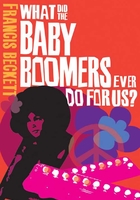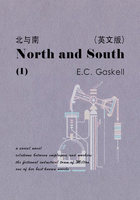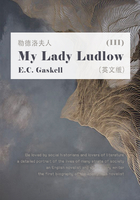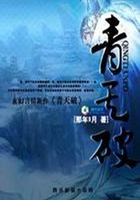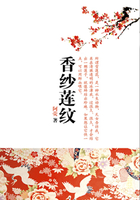Brunetti walked up towards the hotel, still lighted, even at this hour when the rest of the city was darkened and sleeping. Once the capital of the dissipations of a continent, Venice had become a sleepy provincial town that virtually ceased to exist after nine or ten at night. During the summer months, she could remember her courtesan past and sparkle, as long as the tourists paid and the good weather held, but in the winter, she became a tired old crone, eager to crawl early to bed, leaving her deserted streets to cats and memories of the past.
But these were the hours when, for Brunetti, the city became most beautiful, just as they were the same hours when he, Venetian to the bone, could sense some of her past glory. The darkness of the night hid the moss that crept up the steps of the palazzi lining the Grand Canal, obscured the cracks in the walls of churches, and covered the patches of plaster missing from the facades of public buildings. Like many women of a certain age, the city needed the help of deceptive light to recapture her vanished beauty. A boat that, during the day, was making a delivery of soap powder or cabbages, at night became a numinous form, floating towards some mysterious destination. The fogs that were common in these winter days could transform people and objects, even turn longhaired teenagers, hanging around a street corner and sharing a cigarette, into mysterious phantoms from the past.
He glanced up at the stars, seen clearly above the darkness of the unlighted street, and noticed their beauty. Holding their image in mind, he continued towards the hotel.
The lobby was empty and had the abandoned look common to public places at night. Behind the reception desk, the night porter sat, chair tilted back against the wall, that day's pink sporting newspaper open before him. An old man in a green-and-black-striped apron was busy spreading sawdust on the marble floor of the lobby and sweeping it clean. When Brunetti saw that he had trailed his way through the fine wooden chips and couldn't traverse the lobby without tracking a path across the already swept floor, he looked at the old man and said, 'Scusi.'
'It's nothing,' the old man said, and trailed after him with his broom. The man behind the newspaper didn't even bother to look up.
Brunetti continued on into the lobby of the hotel. Six or seven clusters of large stuffed chairs were pulled up around low tables. Brunetti threaded his way through them and went to join the only person in the room. If the press was to be believed, the man sitting there was the best stage director currently working in Italy. Two years before, Brunetti had seen his production of a Pirandello play at the Goldoni Theatre and had been impressed with it, far more with the direction than with the acting, which had been mediocre. Santore was known to be homosexual, but in the theatrical world where a mixed marriage was one between a man and a woman, his personal life had never served as an impediment to his success. And now he was said to have been seen angrily leaving the dressing room of a man who had died violently not too long afterwards.
Santore rose to his feet as Brunetti approached. They shook hands and exchanged names. Santore was a man of average height and build, but he had the face of a boxer at the end of an unlucky career. His nose was squat, its skin large-pored. His mouth was broad, his lips thick and moist. He asked Brunetti if he would like a drink, and from that mouth came words spoken in the purest of Florentine accents, pronounced with the clarity and grace of an actor. Brunetti thought Dante must have sounded like this.
When Brunetti accepted his suggestion that they have brandy, Santore went off for some. Left alone, Brunetti looked down at the book the other man had left open on the table in front of him, then pulled it towards him.
Santore came back, carrying two snifters, each generously filled with brandy.
'Thanks,' Brunetti said, accepting the glass and taking a large swallow. He pointed at the book and decided to begin with that, rather than the usual obvious questions about where he had been, what he had done. 'Aeschylus?'
Santore smiled at the question, hiding any surprise he might have felt that a policeman could read the title in Greek.
'Are you reading it for pleasure, or for work?'
'I suppose you could call it work,' Santore answered, and sipped at his brandy. 'I'm supposed to begin work on a new production of the Agamemnon in Rome in three weeks.'
'In Greek?' Brunetti asked, but it was clear that he didn't mean it.
'No, in translation.' Santore was silent for a moment, but then he allowed his curiosity to get the better of him. 'How is it that a policeman reads Greek?'
Brunetti swirled the liquid around in his glass. 'Four years of it. But a long time ago. I've forgotten almost all I knew.'
'But you can still recognize Aeschylus?'
'I can read the letters. I'm afraid that's all that's left.' He took another swallow of his drink and added, 'I've always liked it about the Greeks that they kept the violence off the stage.'
'Unlike us?' Santore asked, then asked again, 'Unlike this?'
'Yes, unlike this,' Brunetti admitted, not even bothering to wonder how Santore would have learned that the death had been violent. The theatre was small, so he had probably learned that even before the police did, probably even before they had been called.
'Did you speak to him this evening?' There was no need to use a name.
'Yes. We had an argument before the first curtain. We met in the bar and went back to his dressing room. That's where it started.' Santore spoke without hesitation. 'I don't remember if we were shouting at each other, but our voices were raised.'
'What were you arguing about?' Brunetti asked, as calmly as if he'd been talking to an old friend and equally certain that he would get the truth in response.
'We had come to a verbal agreement about this production. I kept my part of it. Helmut refused to keep his.'
Instead of asking Santore to clarify the remark, Brunetti finished his brandy and set the glass on the table between them, waiting for him to continue.
Santore cupped his hands around the bottom of the glass and rolled it slowly from side to side. 'I agreed to direct this production because he promised to help a friend of mine to get a job this summer, at the Halle Festival. It isn't a big festival, and the part wasn't an important one, but Helmut agreed to speak to the directors and ask that my friend be given the part. Helmut was going to be conducting just the one opera there.' Santore brought the glass to his lips and took a sip. 'That's what the argument was about.'
'What did you say during the argument?'
'I'm not sure I remember everything I said, or what he said, but I do remember saying that I thought what he'd done, since I'd already done my part, was dishonest and immoral.' He sighed. 'You always ended up talking like him, when you talked to Helmut.'
'What did he say to that?'
'He laughed.'
'Why?'
Before he answered, Santore asked, 'Would you like another drink? I'm going to have one.'
Brunetti nodded, grateful. This time, while Santore was gone, he laid his head against the back of the chair and closed his eyes.
He opened them when he heard Santore's steps approach. He took the glass that the other man handed him and asked, as if there had been no break in the conversation, 'Why did he laugh?'
Santore lowered himself into his chair, this time holding the glass with one hand cupped under it. 'Part of it, I suppose, is that Helmut thought himself above common morality. Or perhaps he thought he'd managed to create his own, different from ours, better.' Brunetti said nothing, so he continued. 'It's almost as if he alone had the right to define what morality meant, almost as if he thought no one else had the right to use the term. He certainly thought I had no right to use it.' He shrugged, sipped.
'Why would he think that?'
'Because of my homosexuality,' the other answered simply, suggesting that he considered the issue equal in importance to, say, a choice of newspaper.
'Is that the reason he refused to help your friend?'
'In the end, yes,' Santore said. 'At first, he said it was because Saverio wasn't good enough, didn't have enough stage experience. But the real reason came later, when he accused me of wanting a favour for my lover.' He leaned forward and put his glass down on the table. 'Helmut has always seen himself as a sort of guardian of public morals,' he said, then corrected his grammar. 'Saw himself.'
'And is he?' Brunetti asked.
'Is who what?' Santore asked, all grammar forgotten in his confusion.
'Is he your lover, this singer?'
'Oh, no. He's not. More's the pity.'
'Is he homosexual?'
'No, not that, either.'
'Then why did Wellauer refuse?'
Santore looked at him directly and asked, 'How much do you know about him?'
'Very little, and that only about his life as a musician, and only what's been in the newspapers and magazines all these years. But about him as a man I know nothing.' And that, Brunetti realized, was beginning to interest him a great deal, for the answer to his death must lie there, as it always did.
Santore said nothing, so Brunetti prompted him. 'Never speak ill of the dead, vero? Is that it?'
'And never speak ill of someone you might have to work with again,' Santore added.
Brunetti surprised himself by saying, 'That hardly seems to be the case here. What ill is to be spoken?'
Santore glanced across at the policeman and studied his face, giving it the sort of speculative look that he might give to an actor or a singer he was deciding how to use in a performance. 'It's mostly rumour,' he finally said.
'What sort of rumour?'
'That he was a Nazi. No one knows for sure, or if they ever knew, no one is saying, or whatever they might have said in the past has been forgotten, dropped into that place where memory does not follow. He conducted for them while they were in power. It's even said he conducted for the Führer. But he said he had to do it to save some of the people in his orchestra, who were Jews. And they did survive the war, those who were Jews, and managed to play in the orchestra all through the war years. And so did he, play and survive. And somehow his reputation never suffered because of all those years or because of those intimate concerts for the Führer. After the war,' Santore continued, voice strangely calm, 'he said he had been "morally opposed" and had conducted against his will.' He took a small sip of his drink. 'I've no idea what's true, whether he was a member of the party or not, what his involvement was. And I suppose I don't care.'
'Then why do you mention it?' Brunetti asked.
Santore laughed out loud, his voice filling the empty room. 'I suppose because I believe it's true.'
Brunetti smiled. 'That could be the case.'
'And probably because I do care?'
'That as well,' Brunetti agreed.
They allowed the silence to expand between them until Brunetti asked, 'How much do you know?'
'I know that he gave those concerts all during the war. And I know that, in one case, the daughter of one of his musicians went to him in private and begged him to help her father. And I know that the musician survived the war.'
'And the daughter.'
'She survived the war.'
'Well, then?' Brunetti asked.
'Then nothing, I suppose.' Santore shrugged. 'Besides, it's always been easy to forget the man's past and think only of his genius. There was no one like him, and I'm afraid there's no conductor like him left.'
'Is that why you agreed to direct this production for him–because it was convenient to forget his past?' It was a question, not an insult, and Santore clearly took it as such.
'Yes,' he answered softly. 'I chose to direct it so that my friend would get the chance to sing with him. So it was convenient for me to forget all that I knew or suspected, or at least to ignore it. I'm not sure it matters all that much, not anymore.'
Brunetti watched an idea appear in Santore's face. 'But now he won't get to sing with Helmut, ever,' and he added, to let Brunetti know that the purpose of the conversation had never been far beneath the surface, 'which would seem to argue that I had no reason to kill him.'
'Yes, that would seem to follow,' Brunetti agreed, with no apparent interest, then asked, 'Did you ever work with him before?'
'Yes. Six years ago. In Berlin.'
'Your homosexuality didn't present difficulties then?'
'No. It never presented real difficulties, once I was famous enough for him to want to work with me. Helmut's stand, as a sort of guardian angel of Western morality or biblical standards, was pretty well known, but you can't survive very long in this world if you refuse to work with homosexuals. Helmut just made his own sort of moral truce with us.'
'And you did the same with him?'
'Certainly. As a musician, he was as close to perfection as a man could come. It was worth putting up with the man to be able to work with the musician.'
'Was there anything else about the man you found objectionable?'
Santore thought a long time before he answered this. 'No, there's nothing else I knew about him that would make me dislike him. I don't find the Germans sympathetic, and he was very Germanic. But it's not dislike or liking that I'm talking about. It was this sense of moral superiority he seemed to carry about with him, as if it was–he was–a lantern in dark times.' Santore grimaced at the last phrase. 'No, that's not right. It must be the hour or the brandy. Besides, he was an old man, and now he's dead.'
Going back to an earlier question, Brunetti asked, 'What did you say to him during the argument?'
'The usual things one says in an argument,' Santore said wearily. 'I called him a liar, and he called me a faggot. Then I said some unpleasant things about the production, about the music and his conducting, and he said the same things about the stage direction. The usual things.' He stopped speaking and slumped in his chair.
'Did you threaten him?'
Santore's eyes shot to Brunetti's face. He couldn't disguise his shock at the question. 'He was an old man.'
'Are you sorry he's dead?'
This was another question the director wasn't prepared to hear. He thought for a time before he answered it. 'No, not for the death of the man. For his wife, yes. This will be…' he began, but then didn't finish the sentence. 'For the death of the musician, yes, I'm very sorry about that. He was old, and he was at the end of his career. I think he knew that.'
'What do you mean?'
'The conducting, it didn't have its old glory somehow, didn't have that old fire. I'm not a musician, so I can't be clear about just what it was. But something was missing.' He paused and shook his head. 'No, maybe it's just my anger.'
'Did you talk to anyone about this?'
'No; one doesn't complain about God.' He paused for a moment, then said, 'Yes, I did. I mentioned it to Flavia.'
'La Signora Petrelli?'
'Yes.'
'And what did she say?'
'She'd worked with him before; often, I think. She was bothered by the difference in him, spoke to me about it once.'
'What did she say?'
'Nothing specific; just that it was like working with one of the younger conductors, someone with little experience.'
'Did anyone else mention it?'
'No, no one; at least not to me.'
'Was your friend Saverio in the theatre tonight?'
'Saverio's in Naples,' Santore responded coldly.
'I see.' It had been the wrong question. The mood of easy intimacy was gone. 'How much longer will you be in Venice, Signor Santore?'
'I usually leave after the prima has been successfully performed. But Helmut's death will change things. I'll probably be here for another few days, until the new conductor is fully at home with the production.' When Brunetti made no response to this, he asked, 'Will I be allowed to go back to Florence?'
'When?'
'Three days. Four. I have to stay for at least one performance with the new conductor. But then I'd like to go home.'
'There's no reason you can't go,' Brunetti said, and stood. 'All we'll need is an address where we can reach you, but you can certainly give that to one of my men at the theatre tomorrow.' He extended his hand. Santore got to his feet and took it. 'Thank you for the brandy. And good luck with the Agamemnon.' Santore smiled his thanks, and saying nothing else, Brunetti left.


